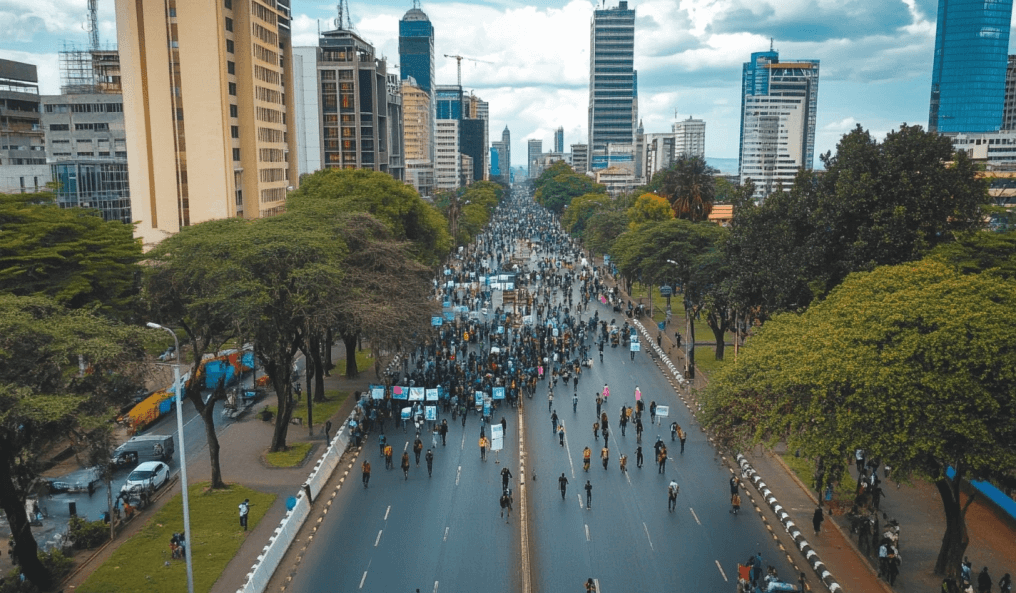Political stability is a critical factor in any nation’s economic growth, and the real estate sector is no exception. In Kenya, as in many other countries, political instability can have profound effects on the growth of the real estate market. When political tensions rise, uncertainty can ripple through various industries, with real estate being one of the most affected sectors.
In this article, we explore how political instability impacts real estate growth, looking at both short-term disruptions and long-term effects, as well as offering insights into how investors and developers can mitigate these risks.
READ MORE – How Political Risks Affect the Real Estate Market
Table of Contents
1. Reduced Investor Confidence
One of the immediate consequences of political instability is a decline in investor confidence. Real estate investments are long-term and often require substantial capital, making them particularly vulnerable to shifts in political climate. When the political environment is uncertain, investors may hesitate to commit their resources. This is due to concerns such as potential political violence that could damage properties or make certain areas unsafe.
2. Delays in Development Projects
Political instability often leads to delays in the approval of development projects. This is especially if there are changes in government or public administration. Bureaucratic processes may slow down and approvals for building permits, land transfers, and other essential procedures can be delayed. This affects not only developers but also homebuyers, businesses, and investors waiting for projects to be completed.
3. Fluctuations in Property Prices

An unstable political environment can cause property prices to fluctuate, often leading to a decline in the value of real estate in affected areas. In times of political uncertainty, potential buyers are less likely to invest, resulting in reduced demand for property. This, in turn, can lead to lower property prices. Conversely, once stability is restored, property prices may experience a rapid increase as confidence returns and demand picks up again.
READ MORE – This Simple Hack Could Double the Value of Your Property Overnight!
4. Decreased Foreign Investment
Political instability can deter foreign investors from entering the real estate market. International investors typically seek stable environments where their investments are secure, and they can expect a return without the risk of sudden policy changes, civil unrest, or expropriation of property. When instability is present, foreign direct investment (FDI) tends to decline, which affects the growth of sectors such as real estate, where FDI plays a crucial role in financing large-scale developments.
5. Increased Risk of Property Damage
In times of political unrest, properties can become targets of violence or looting. This is particularly true for commercial real estate, such as office buildings, shopping malls, and warehouses, which are often located in urban centers that may experience higher levels of unrest. Additionally, real estate developments in areas perceived to be politically volatile may suffer from long-term reputational damage, further reducing their value.
6. Limited Access to Financing
During periods of political instability, financial institutions may become more cautious about lending, particularly for real estate projects. Banks may tighten lending requirements or raise interest rates due to perceived risks, making it more difficult for developers and homebuyers to secure financing. This can lead to a slowdown in construction and property purchases, ultimately hindering the growth of the real estate sector.
READ MORE – Cash vs Mortgage Financing: Which is the Better Option?
Mitigating Risks During Political Instability
While political instability can pose challenges to real estate growth, investors and developers can take several steps to mitigate risks. These include:
- Diversifying investments across different regions and sectors to spread risk.
- Conducting thorough due diligence to understand the political landscape and any potential legal changes that may impact property rights.
- Engaging with local legal and financial advisors who have a deep understanding of the political environment and can provide guidance on navigating risks.
- Investing in property insurance to protect against damage or loss during periods of unrest.
READ MORE – Understanding the Vital Role of Home Insurance in Safeguarding Your Future
Conclusion
Political instability has far-reaching effects on real estate growth, from reducing investor confidence and delaying development projects to causing property price fluctuations and decreasing foreign investment. However, by understanding these risks and taking proactive steps to mitigate them, developers and investors can continue to navigate the market and find opportunities even in uncertain times. As Kenya continues to evolve politically, the real estate sector must adapt to these dynamics to ensure sustainable growth



